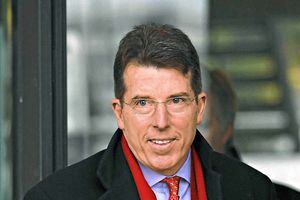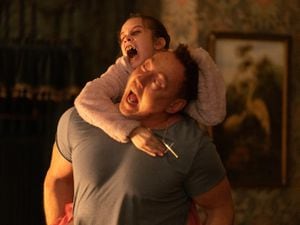TV review: Bankers – Fixing the System
It's tough to make good, engaging, interesting TV about the banking crisis, writes Simon Penfold. By its very nature, it is technical, often involves arcane language and seems to require lots of talking heads in grey suits.

This latest effort, part of a new series from the BBC's much-respected Money Programme strand, adds some women witnesses into the mix but the bottom line tends to be that banking is, and remains, a very male dominated business.
And it was the shift from a gentlemen's club where their word was their bond, to a far more testosterone-fuelled, aggressive and competitive style of banking and investing that is partly at the root of the disaster over the past five years that hit the financial sector and, by extension, the rest of us.
The first episode of Bankers focused on Bob Diamond, the American investment banker brought in to turn a sleepy arm of Barclays into what would become its core profit-maker, Barclays Capital. Described as charismatic and competitive, Diamond was compared by one commentator to Herbert von Karajan, one of the greatest conductors of the last half century, for the way he orchestrated operations at Barclays.
And yet, after the Libor rate-rigging scandal saw him lose his job, he was unable to tell a Parliamentary committee what the three core values of the original Quaker founders of Barclays had been – honesty, integrity and plain dealing.
The programme tried to use the Libor scandal, in which banking executives and investment managers deliberately fixed the rate, at which banks lend to each other, to serve their own ends.
It became clear that the roots of the Libor scandal went back to the early days of the financial crisis, in 2007 and 2008, and the programme tried to follow the revelations as they led to ever-greater fines at Barclays, Royal Bank of Scotland and the Swiss bank UBS.
But it felt that there was just too much to take in. In the hands of a single expert narrator pursing a single line of inquiry, this might have worked. But Bankers tries to include all the wide-ranging woes of the banking sector in one indigestible lump. The result was stodgy and a bit of a mess.
Too many talking heads, too many aspects and angles to the scandal; it all served to confuse rather than clarify.
A few, such as former Financial Services Authority chief Lord Adair Turner, were heavily critical of how the banks operate. But, as the man whose organisation was supposed to be on watch while much of this nefarious activity was going on, he has his own questions to answer.
Some of the bankers and regulators talking last night appeared to giving a frank account of what they saw and heard. Others, less so. Some appeared to still take the view that what the bankers had done was understandable.
Officers from the Serious Fraud Office, currently probing the Libor scandal, may disagree.
But, like so much of the programme, this was going over old ground.
There was little here that was really fresh, no revelations to shine new light on the who, why or how.
Perhaps this is because we know the answers to most of these questions. Bankers were being paid huge amounts of money to make big profits, not to be sensible or responsible. And no-one cared until the wheels came off and they took the rest of us with them.
Looking back, the warning signs were clear for those who were looking for them. The trouble was, very few people in the UK's financial industry wanted to look.
At some stage someone will make a concise, clear and illuminating TV series about the last five years. Unfortunately, on current showing, Bankers won't be it.





